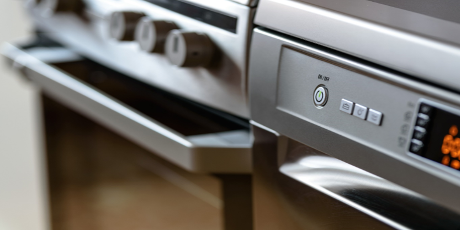5 ways an Irish household can reduce carbon emissions 07 Jan 2020

Opinion: from heating to transport, here are some ways to reduce your family's carbon footprint
- Dr Paul Deane, School of Engineering, MaREI Research Centre for Energy, Climate and Marine, Environmental Research Institute
It's not easy being green and it’s often quite confusing to know where to start if you want to do your bit for a cleaner planet. Climate change is a significant challenge facing society and is caused by a build-up of heat trapping gasses in the atmosphere.
We can measure an individual’s contribution to global warming with what’s called a "carbon footprint". This is a measure in tonnes of the most abundant heat trapping gas called carbon dioxide released into the atmosphere due to our activities over the course of a year.
A typical Irish home has a carbon footprint of about 11 tonnes, which is one of the highest in Europe. To put this in context our EU neighbours emit about 25% less in their households. If we want to reduce our carbon footprint at home, here are some of the things we can do.
How we heat our homes
The largest source of emissions for a typical home is due to heating when our boilers use fossil fuels like oil or we use coal in our fires. We need about three times more energy to heat our homes than we do to power our appliances mainly because we have a lot of low-quality housing in Ireland and our homes leak most of the heat.
While this is bad for the environment, living in cold, damp homes is also bad for our mental and physical wellbeing and of course our pocket. An Irish household can spend up to €1,000 more a year on heating than the equivalent well insulated house
This points to a simple problem, but the solution is expensive because it involves what is called a "deep retrofit" which means that walls are heavily insulated and windows and doors are updated. While the Sustainable Energy Authority of Ireland offer grant assistance, helping families find money for retro-fitting is likely one of the largest challenges facing Ireland’s transition to a cleaner economy
How we move around
We love our cars in Ireland and typically travel about 16,000km each year, but the combustion of petrol and diesel in our cars has a carbon footprint of about two tonnes. Switching to an electric car will reduce this significantly, especially as we build more clean renewable power in Ireland.
Electric cars might still too expensive for most households, but other practical measure will also help reduce your carbon footprint from transport. Taking public transport, lift sharing, cycling and even working from home can also deliver big emissions reduction if done regularly.
How we power our appliances
A much welcome success story in Ireland in recent years has been the greening of our electricity supply with cleaner fuels and more renewables. Irish homes are also using less electricity because even though we have more gadgets like smart phones and consoles, our household appliances are today more efficient and use less electricity.
We can continue this trends by choosing energy efficient appliances and the option also exist for Irish homes to seamlessly switch electricity supplier to 100% renewable supplier.
What we eat
You are what you eat, but what we eat has a big impact on our environment. A significant source of emissions in Ireland and globally is agriculture, particularly red meat and milk. Plant based alternatives such as oat drinks have a much lower impact on the environment even when the extra air miles associated with getting this to Ireland is taken into account.
But you don’t have to go vegan or avoid meat completely. The balance of evidence suggests a reduction but not the elimination of animal-sourced food consumption is best. This is especially important for infants, children and women during pregnancy where the consumption of animal-sourced food is preferable due to its high nutrient density.
Where we fly
It’s no secret that flying has a high environmental impact. A family of two adults and two kids taking a holiday to Paris generates the same amount of emissions as driving your car for six months, A simple, but not always attractive or feasible solution, is to fly less and try to holiday in Ireland
If you do have to fly, see if you can offset your flight with a certified company who will ensure your emissions are offset elsewhere.
What we waste
Most of us are aware of the problem of single use plastics. While these plastics and recycling rightly get a lot of media attention, their contribution to global warming is small when compared to other sources like heating our homes and transport. We can all do our part by simply buying less plastic and the plastic we do buy should be recycled correctly
While being green is not always easy or sometimes even cheap, many of the solutions above deliver benefits than are not only good for the planet but are also good for our wellbeing.